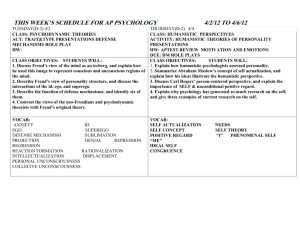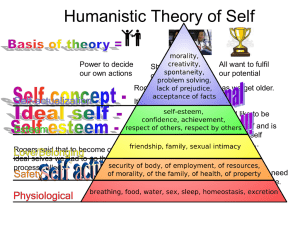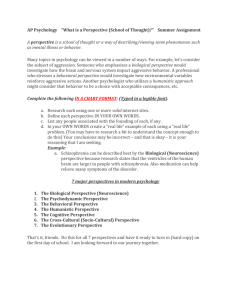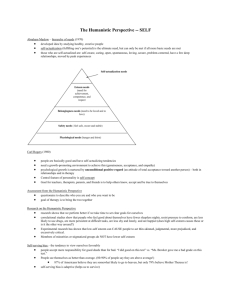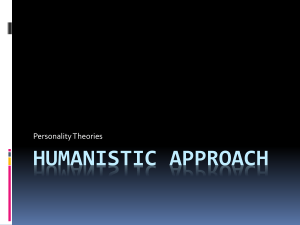The Humanistic Perspective (HL Only) Introduction Humanistic
advertisement
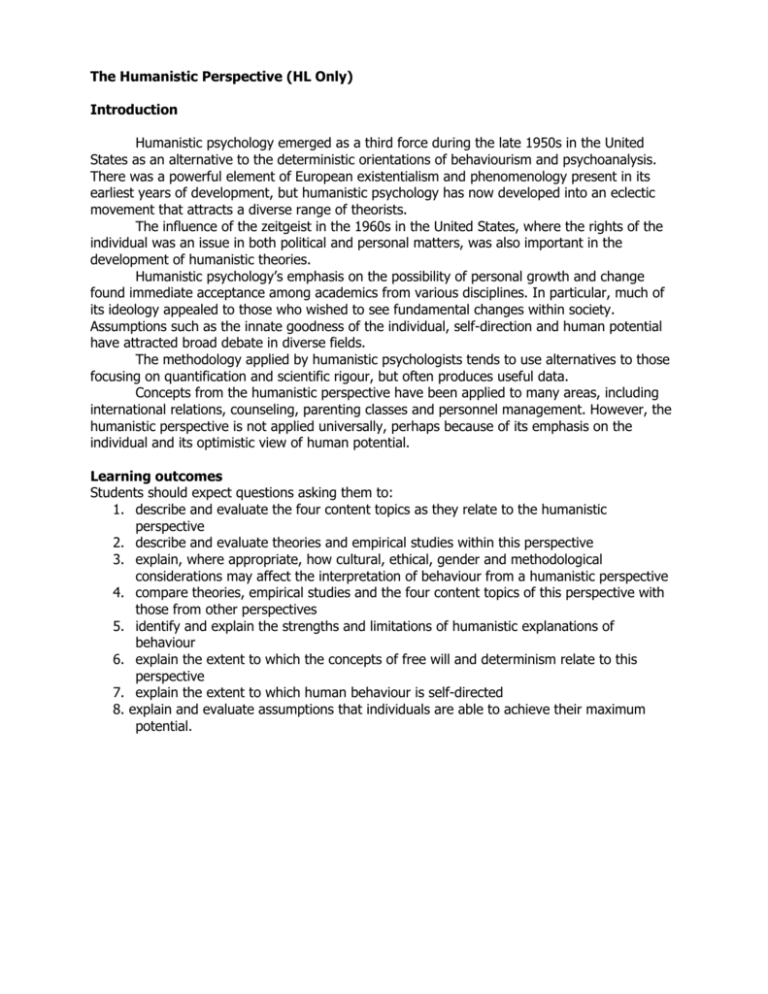
The Humanistic Perspective (HL Only) Introduction Humanistic psychology emerged as a third force during the late 1950s in the United States as an alternative to the deterministic orientations of behaviourism and psychoanalysis. There was a powerful element of European existentialism and phenomenology present in its earliest years of development, but humanistic psychology has now developed into an eclectic movement that attracts a diverse range of theorists. The influence of the zeitgeist in the 1960s in the United States, where the rights of the individual was an issue in both political and personal matters, was also important in the development of humanistic theories. Humanistic psychology’s emphasis on the possibility of personal growth and change found immediate acceptance among academics from various disciplines. In particular, much of its ideology appealed to those who wished to see fundamental changes within society. Assumptions such as the innate goodness of the individual, self-direction and human potential have attracted broad debate in diverse fields. The methodology applied by humanistic psychologists tends to use alternatives to those focusing on quantification and scientific rigour, but often produces useful data. Concepts from the humanistic perspective have been applied to many areas, including international relations, counseling, parenting classes and personnel management. However, the humanistic perspective is not applied universally, perhaps because of its emphasis on the individual and its optimistic view of human potential. Learning outcomes Students should expect questions asking them to: 1. describe and evaluate the four content topics as they relate to the humanistic perspective 2. describe and evaluate theories and empirical studies within this perspective 3. explain, where appropriate, how cultural, ethical, gender and methodological considerations may affect the interpretation of behaviour from a humanistic perspective 4. compare theories, empirical studies and the four content topics of this perspective with those from other perspectives 5. identify and explain the strengths and limitations of humanistic explanations of behaviour 6. explain the extent to which the concepts of free will and determinism relate to this perspective 7. explain the extent to which human behaviour is self-directed 8. explain and evaluate assumptions that individuals are able to achieve their maximum potential. Content Suggestions for detailed study Development and cultural contexts Historical and cultural conditions that gave rise to the humanistic perspective • humanistic psychology as a third force in reaction to previous deterministic perspectives • European phenomenology and existentialism Contribution of the humanistic perspective to the study of behaviour • use of qualitative techniques • personality theories Framework Key concepts • peak experiences • organismic-valuing process • hierarchy of needs Assumptions on which key concepts are based • • • • Evaluation of assumptions • comparison with other perspectives to explain strengths and limitations • empirical studies that challenge or support Theoretical explanations of behaviour • • • • • • Methodologies Methods free will in humans humans are intrinsically good uniqueness of individuals innate drive of humans to achieve their maximum potential self-actualization facilitation conditions of growth unconditional positive regard empathy congruence • self-report • case studies, including archival research • Q-sort Strengths and limitations of methods • lack of scientific rigour • generation of useful qualitative data Ethics and controversies of research • accuracy of biographical data • relevance of phenomenological approach Application Effectiveness (relative strengths and limitations) of the perspective in explaining psychological or social questions • understanding of relationships, groups and individuals, conflict resolution and cross-cultural understanding, and promotion of peace Application of theories and findings of empirical studies from the humanistic perspective • contribution of the humanistic perspective in areas such as education (for example, classroom management), work (for example, organizational management), or therapy (for example, different types of humanistic counseling)
